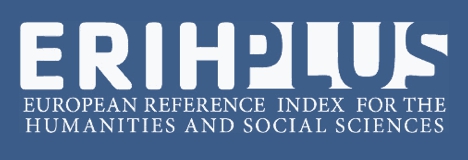The american continent in fundamental teaching: a methodological proposal from the stage supervised in geography
Abstract
This work analyzes the educational project developed under the Supervised Internship in Geography, of the Geography Course of the Universidade Estadual da Paraíba, in a group of the 8th year of Basic Education in a public school in the Boqueirão-PB town, in which the American continent was approached from different strategies and didactic resources. It aimed to promote a critical analysis of America, from the elements that permeated its spatial production process and the consequences of this in its current organization. From the activities, in addition to the interest that was aroused, the students understood that the differences existing between Latin America and Anglo-Saxon America, result from the way in which they have been inserted in the International Division of Labor, since the colonization, demonstrating that Geography can contribute to a critical and reflective formation.
References
ALMEIDA, R. D.; PASSINI, E. Y. O espaço geográfico: ensino e representação. 4ª ed. São Paulo, Contexto, 2010. 90p.
ALVES, C. C. E. Ensino de geografia e suas diferentes linguagens no processo de ensino e aprendizagem: perspectivas para a educação básica e geográfica. Geosaberes, Fortaleza, v. 6, número especial (3), p. 27 - 34, 2016.
ALVES, T. L. B. A utilização de charges e tiras humorísticas como recurso didático-pedagógico mobilizador no processo de ensino-aprendizagem da Geografia. Revista Educação, Santa Maria, v. 38, n. 2, p. 417-432, maio/ago. 2013.
ARAÚJO, F. R. O uso de imagens no Processo de ensino/aprendizagem em Geografia na Escola Estadual de Ensino Fundamental Castro Pinto, Jacaraú-PB. (Monografia). Curso de Licenciatura em Geografia, Universidade Estadual da Paraíba, Guarabira, 2012.
BRAMBILA, J. E. M.; OLIVEIRA, R. M. G.; FRANCO, S. A. P. Leitura de Charges: um projeto de intervenção para o ensino de Geografia na Educação Básica. In: Colóquio Internacional de Educação. Anais... Santa Catarina-PR/Brasil, 22 a 24 de setembro, 2014.
BRASIL, Parâmetros Curriculares Nacionais 3° e 4° Ciclos do Ensino Fundamental de Geografia. Ministério da Educação e do Desporto, Secretaria de Educação Fundamental. Brasília: MEC/SEF, 1998.
CALLAI, H. C. Estudar o lugar para compreender o mundo. In: CASTROGIOVANNO, A. C. (Org.). Ensino de Geografia: práticas e textualizações no cotidiano. Porto Alegre: Mediação, 2009. p. 83-92.
CORRÊA, R. L. Região e organização espacial. 8a ed. São Paulo: Ática, 2007. 93p.
GALEANO, E. As Veias Abertas da América Latina. Rio de Janeiro: Paz e Terra, 1981. 201p.
KAERCHER, N. A. O gato comeu a geografia crítica? Alguns obstáculos a superar no ensino-aprendizagem de geografia. In.: PONTUSCHKA, N.N; OLIVEIRA, A. U. de (Orgs.) Geografia em Perspectiva: ensino e pesquisa. São Paulo: Contexto, 2010. p.221-231.
KLIMEK, R. L. C. Como aprender Geografia com a utilização de jogos e situações-problema. In: PASSINI, E. Y. (et. al.). Prática de ensino de geografia e estágio supervisionado. 2a ed. São Paulo: Contexto, 2011. p.117-123.
MALYSZ, S. T. Estágio em parceria universidade-educação básica. In: PASSINI, E. Y. (et. al.). Prática de ensino de geografia e estágio supervisionado. 2a ed. São Paulo: Contexto, 2011. p.16-25.
MORAIS, I. D. Diferentes linguagens no ensino de Geografia: novas possibilidades. In: ALBUQUERQUE, M. A. M.; Ferreira, J. A. S (Orgs.). Formação, Pesquisas e Práticas Docentes: Reformas Curriculares em Questão. João Pessoa: Editora Mídia, 2013, p.241-264.
NASCIMENTO, L. F. A. Estratégias para trabalhar a temática globalização nas aulas de Geografia. IN: III Congresso Nacional da Educação. Anais... Natal -RN/Brasil, 05 a 07 de outubro, 2016.
SANTOS, M. A natureza do espaço: técnica e tempo, razão e emoção. São Paulo: Hucitec, 1996. 308 p.
SOUSA NETO, M. F. A ciência geográfica e a construção do Brasil. Terra Livre. São Paulo, n.15, p.9-20, 2000.
Keywords
Policy Proposal for Free Access Journals
Authors who publish in this journal agree to the following terms:
a. Authors retain the copyright and grant the journal the right of first publication, with the work simultaneously licensed under the Creative Commons Attribution License which allows the sharing of the work with acknowledgment of the authorship of the work and initial publication in this journal.
b. Authors are authorized to take additional contracts separately, for non-exclusive distribution of the version of the work published in this journal (eg publish in institutional repository or as a book chapter), with acknowledgment of authorship and initial publication in this journal.
c. Authors are allowed and encouraged to publish and distribute their work online (eg in institutional repositories or on their personal page) at any point before or during the editorial process, as this can generate productive changes, as well as increase the impact and The citation of published work (See The Effect of Free Access).





















